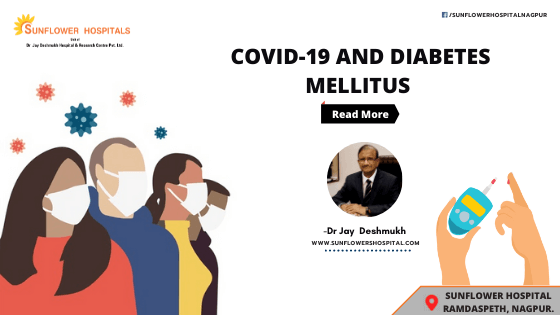The care of diabetics in Covid 19 infection is Ceri certainly not easy and requires a lot of insight and extra care. Covid infection in Diabetics makes them more prone to ketoacidosis, hyperosmolar hyper-glycaemic states, and severe insulin resistance. The risk of severe Covid infection is more likely to be present in the elderly, diabetics, asthmatics, and those with cardiovascular diseases.
What happens to type 2 diabetics with Covid infection?
Patients are likely to have more complications, more intensive care admissions, a longer length of stay, and increased death rates. In China, the case fatality was 7.3% against 2.3% in nondiabetics. In the USA the death rate was 28.8% in uncoil• trolled blood glucose levels in diabetics with Covid. Patients with type 1 diabetes also have a prolonged hospital stay if infected with COVID virus infection.
Is there a risk of hypoglycemia in individuals particularly those hospitalized or those on Insulin?
Hospitalized patients are susceptible to a prolonged, severe hypoglycemia. In Covid diabetics, sudden hypoglycemia may occur in those who are recovering from Covid. As the steroids are withdrawn the blood glucose may drop remarkably, making the individual susceptible to hypoglycemia.
Which anti-diabetic medications are preferred during Covid infection?
Many oral agents used in the management of diabetes are discontinued and Insulin is started for a few days till the patient is discharged from the hospital. Particularly Metformin is discontinued for the fear of lactic acidosis. In those where kidney functions are compromised or in case of severe dehydration. Metformin can cause problems. Drugs belonging to SGLT class are not given as they may add to the dehydration.
What about insulin resistance?
Severe insulin resistance is observed with any serious illness in diabetics. Covid is not an exception. The daily dose of insulin may increase suddenly in Covid infection. As the infection subsides, the Insulin doses may also be reduced dramatically- portions, your cardiovascular status, and make sure to take your vaccines. Avoid crowds, unnecessary travel, and excess socialization. Be extra careful if you are a diabetic and have a cardio-vascular illness. Individuals who had angioplasty or bypass surgery need to be on extra alert at all tunes.
What precautions need to be taken by diabetics after they recover from Covid infection?
Make sure that you have a proper diet as per your doctor’s recommendations. Multiple small feeds with no sugar or jaggery or honey may be beneficial. Regular monitoring of blood glucose. blood pressure and check for symptoms causing thrombotic issues. Post-Covid many diabetics are susceptible to acute occlusion of their arteries leading to the brain, kidneys, extremities, and heart. Prophylactic blood thinners like Aspirin or oral ant coal. Wants are recommended. Regular exercises as per your doctor’s advice are important.
What are the targets of blood glucose in individuals in the pre or post-Covid phase?
Blood glucose of 140 to 180mg is acceptable in most patients admitted to Covid care centers. However, in post-Covid care, HbA1C of 6.5 to 7% should be targeted. Post-meal blood glucose of 160 mg should be adequate. Post-Covid complications are less in diabetics who have better glucose con. control. If experts are to be believed the third Covid wave is likely to strike us in a month or two. Take all precautions like social distancing, double mask-ing, and vaccination. Diabetics are more vulnerable to have complications in case they have Covid infection. In the United States, the third wave has made massive inroads. If past experience is to be believed then we may expect a third wave in two months.
Is insulin given in the usual subcutaneous form or intravenous route?
To limit the contact of medics with the patient, subcutaneous insulin was preferred in even those with mild ketoacidosis. In this blood, glucose was tested every 2 to 4 hours. However, for those with Covid infection and severe ketoacidosis, severe heart, kidneys, or liver problems with Covid infection, and those diabetics who are pregnant, subcutaneous insulin protocols are not followed.
What precautions a diabetic should take now as many experts believe that the third wave is expected in a month or two? Blood glucose should be estimated and should be kept under control. Please check your blood pressure, kidney fluid
Author: Dr Jay Deshmukh
Dr Jay Deshmukh is Chief Physician and Director, Sunflower Hospital, Nagpur Honorary Physician to Honorable Governor of Maharashtra and PondicherryCentral. Dr Jay Deshmukh is an M.B.B.S., M.C.P.S., F.C.P.S., M.N.A.M.S., MD From Internal Medicine – Bombay and New Delhi.


